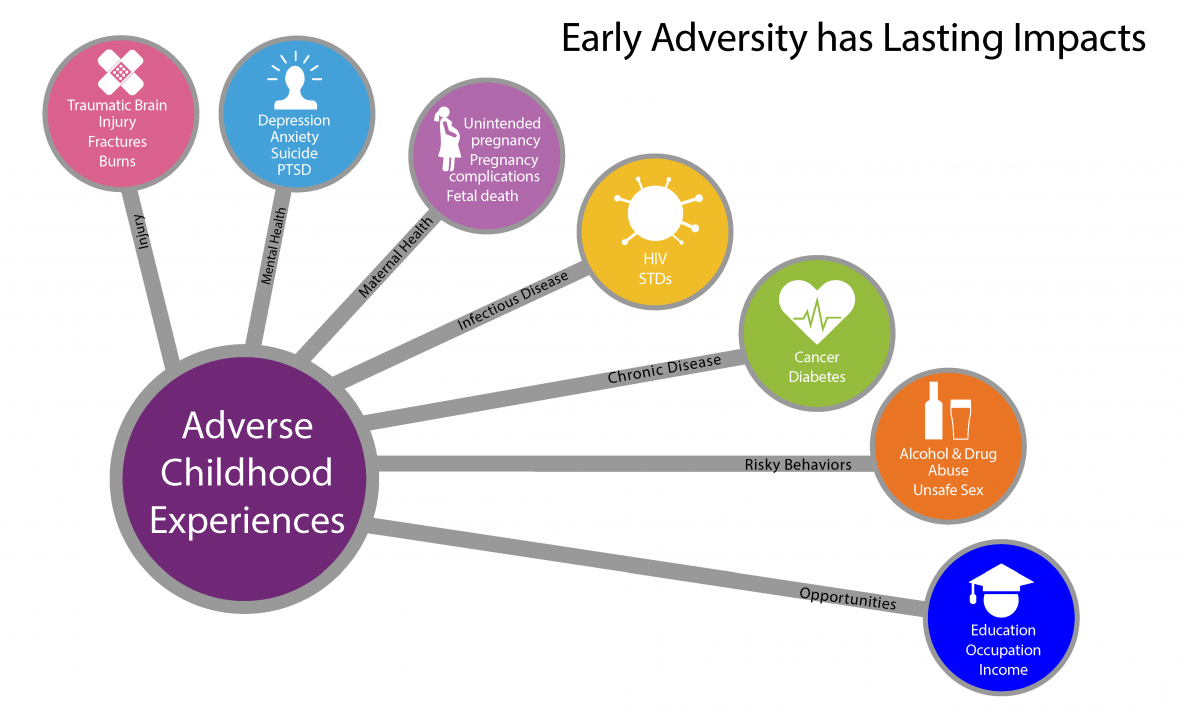What is ACE? Good question!!
ACE stands for Adverse Childhood Experience(s).
What I wish someone told my mother before she had children: “If you do not love life, do not create life.” (Youtube Comments Section)
“Bad parenting is a health crisis. If you have stable, well adjusted, loving parents. You don’t know how lucky you are…” (Youtube Comments Section)

“The worst thing about abusive parenting, is the parents many times don’t realize they’re abusive. This is why I believe every new parent should take a parenting class to understand child psychology.” (Youtube Comments Section).
I would encourage you to stop here to watch Dr. Nadine Burke Harris’ Ted Talk on youtube: How childhood trauma affects health across a lifetime.
Welcome Back!!
According to Dr. Harris: ACE is:
1. Physical, emotional, or sexual abuse
2. Physical or emotional neglect
3. Parental mental illness, substance dependence, and incarceration
4. Parental Separation or divorce
5. Domestic violence
For every yes for any of the above you get a point on your ACE score.
My ACE score is a 7. I encourage to stop here to calculate your own ACE score.
My childhood background:
I am the fifth child of two US-trained professionals. My father is a retired college professor and my mother is a retired nurse. I hate that I am revealing my family like this, but I must because I want parents or future parents like yourselves to learn from my parents’ mistakes.
First, my parents both grew up in a Nigerian society that treats children as sub-humans who can be maltreated or man-handled anyhow by adults. Some of my sibling are childhood victims of extreme physical abuse. The Nigerian mentality is children must be beaten to shape or they will become insubordinate members of society, at least this is how I saw childhood in Nigeria. My father was extremely maltreated in his childhood. Unfortunately, he perpetrated the same pattern of abuse unto his children.
My paternal grandfather was a married man to three wives. My father’s mother died at a young age which left my father and his two siblings at the mercy of two stepmothers. One of my father’s stepmother attempted to poison him at a young age. A few years after my father lost his mother, he eventually lost his father. My father grew up into adulthood as an orphan. Thankfully, my father’s eldest brother stepped up, and provided for my father from a young age. My father’s childhood was turbulent. Which leads me to lesson number 1: Believe it or not, your childhood has an impact on your life. If you had a turbulent childhood, you must make a conscious decision that your children will not through the same experience, as you did. You MUST HEAL FROM YOUR Childhood. There is a saying that abuse people abuse other people. Hurt people hurt others. If you do not deal with the pain from your past or childhood, you may subject your children to the same pattern of abuse.
Interesting Plug: my father wrote a book about his life if you are interested in reading more. Hit me up! The book is not free! You must buy the book. Let me know at 9jagirl4real@gmail.com
My mother’s childhood experiences are still unknown or not clear to me. My maternal grandmother was given up for marriage at an incredibly young age like 16 or 17. My grandmother became a mother at a young age. My mother does not talk about her past even to her own children. We rarely know what happened in her childhood. The lack of disclosure to her own children could be an indication that it was not all good. Or maybe it was, I do not know.
Turbulence plus turbulence = ACEs for the children (solely my opinion).
Future parents, you can change the trajectory of your children’s lives through self-awareness. You must be aware that your past informs your future. You must be proactive to change history. Because your mother or father abused you does not mean you have to follow the same trend for your own children. ACE is real.
Back to Dr. Burke Harris, there is a correlation between ACE score and health outcomes. The higher the ACE score, the worse the health outcome. “67% of the population have at least one ACE. 12.6% of the population have at least 4 or more ACEs” (Dr. Harris). The person with an ACE score of 4 or more has a relative risk of chronic obstructive pulmonary disease two and a half times that of someone with an ACE score of zero. For Depression, also 4 and half times, that of someone with an ACE score of zero. For suicidality, it was 12 times that of someone with an ACE score of zero. A person with an ACE of 7 or more has triple the lifetime risk of lung cancer and three and a half times the risk of ischemic heart disease. The number one killer in the United States (Dr. Harris).
Remember, I said my ACE score was a 7. According to Dr. Harris, I have triple the lifetime risk of lung cancer and three-and-a-half-times risk of ischemic heart disease. ACEs is not a joke, people.
How has ACEs influenced in my life? Well, you must wait for Part II to find out.